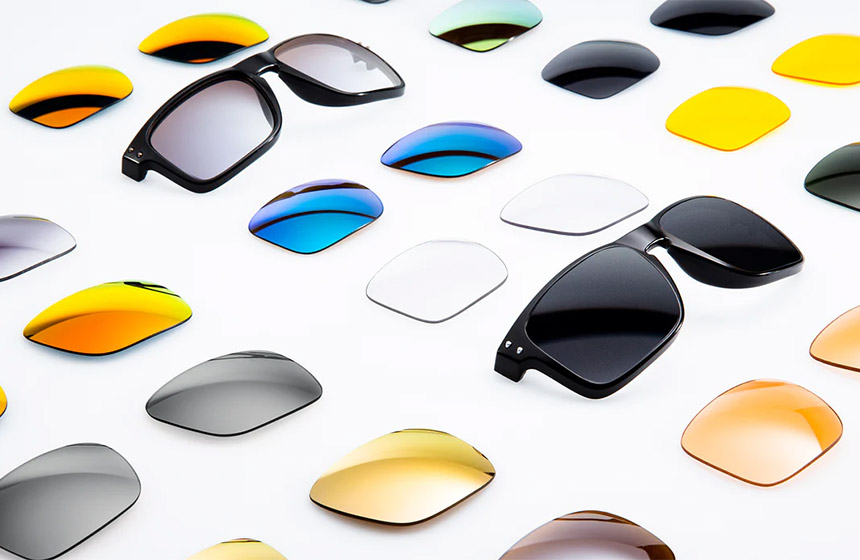Choosing the right material for sunglasses lenses is vital for achieving both functionality and comfort. Each lens material offers unique benefits and drawbacks, Here, we compare five popular lens materials: Glass, Polycarbonate, Trivex, Nylon, and Acrylic, to help you make an informed choice.
Sunglasses Lens Material Comparison
Property | Glass | Polycarbonate | Trivex | Nylon | Acrylic |
Optical Clarity | Excellent | Good | Good | Fair | Fair |
Impact Resistance | Low | High | High | Very High | Low |
Weight | High | Low | Low | Very Low | Low |
UV Protection | Good | Excellent | Excellent | Excellent | Good |
Scratch Resistance | High | Medium | Medium | Low | Low |
Cost | High | Medium | Medium | Low | Low |
Chemical Resistance | High | Medium | High | High | Medium |
Flexibility | Low | High | High | Very High | Medium |
Abbe Value (Optical Quality) | High (58) | Low (30) | Medium (45) | Low (30) | Medium (45) |
Above is a quick comparison of material properties, below we have a detailed overview of each lens’ unique characteristics.
Sunglasses Glass Lens

Sunglasses Glass Lenses are renowned for their superior optical clarity, offering precise and sharp vision. They are highly scratch-resistant, maintaining their pristine condition over long periods.
However, glass lenses are relatively heavy and may break on impact, presenting potential safety issues. They are more expensive to manufacture and offer limited color and tint options.
Pros | Cons |
|
|
Sunglasses Polycarbonate Lens
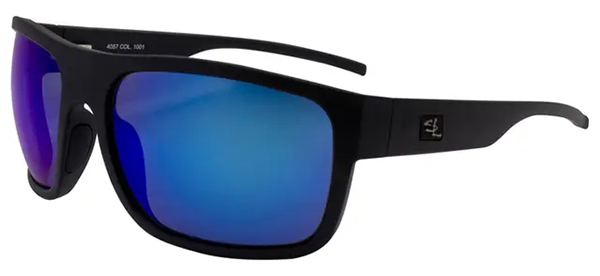
Polycarbonate lenses are popular for their impact-resistant and shatterproof properties, making them a safe choice for active lifestyles. They are lightweight and provide comfort for extended wear.
These lenses block 100% of UV rays but are prone to scratches and have lower optical clarity compared to glass. They are readily accessible and reasonably priced.
Pros | Cons |
|
|
Sunglasses Trivex Lens
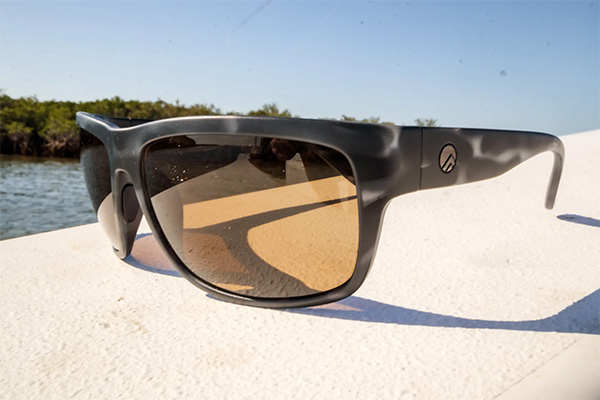
Trivex lenses combine excellent optical clarity with high impact resistance, providing clear vision and durability. They are lightweight, offering comfortable wear without compromising safety.
Though more expensive than polycarbonate, Trivex lenses are less scratch-resistant than glass. They block 100% of UV rays and are available in limited tints and colors.
Pros | Cons |
|
|
Sunglasses Nylon Lens
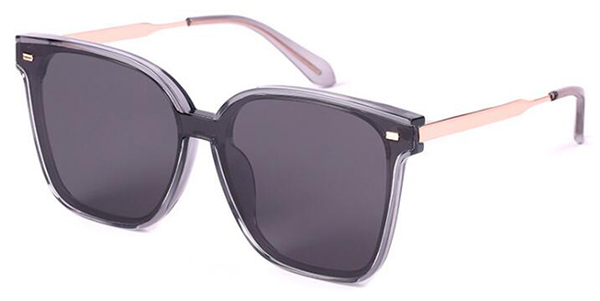
For sports and outdoor activities, nylon lenses are perfect because they are extremely flexible and resistant to impact. Their lightweight nature ensures comfort during prolonged use and resistance to temperature changes.
However, nylon lenses have lower optical clarity and are prone to scratches. They can degrade over time but are available in various tints and colors.
Pros | Cons |
|
|
Sunglasses Acrylic Lens
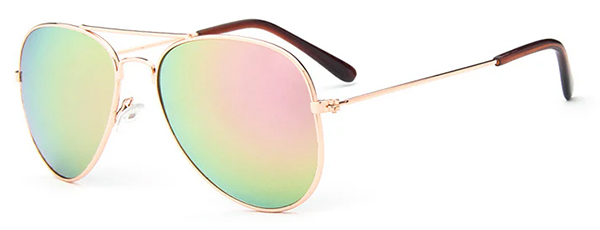
Acrylic lenses are an affordable option, offering lightweight comfort and a variety of tint and color choices. They are resistant to shattering, providing a safe and budget-friendly option.
Despite their affordability, acrylic lenses have lower optical clarity and are prone to scratches. They can warp under heat and are less durable compared to polycarbonate lenses.
Pros | Cons |
|
|
Making the Right Choice
For Superior Optical Clarity and Scratch Resistance
If optical clarity and scratch resistance are your top priorities, glass lenses are the best choice. They provide the clearest vision and remain scratch-free over time, making them ideal for everyday wear and activities where precision is crucial.
For Impact Resistance and Lightweight Comfort
Polycarbonate lenses are the go-to option for those who need durable and lightweight lenses. Their durability against impacts makes them ideal for sports and outdoor activities. They are also a safe choice for children due to their shatterproof nature.
For a Balance of Clarity and Durability
Trivex lenses offer a good balance between optical clarity and impact resistance. They are suitable for those who want a bit of both without compromising too much on either front. Even though they are pricier, their advantages make the cost worthwhile for many users.
For Flexibility and Outdoor Use
Nylon lenses are highly flexible and can withstand outdoor conditions well. They are ideal for active people needing durable lenses that withstand different environments without breaking.
For Budget-Friendly Options
For people on a tight budget, acrylic lenses are the ideal choice. While they do not offer the same level of optical clarity or durability as other materials, they provide basic protection and come in a variety of styles and colors.
Conclusion
By recognizing the pros and cons of each sunglasses lens material, you can choose the option that best fits your lifestyle and needs. Whether you prioritize clarity, durability, impact resistance, or cost, there is a lens material that will meet your requirements and enhance your overall sunglasses experience.

